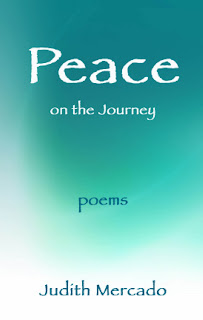
Some of you may have noticed that last week I modified slightly the layout of this blog. Where the About Me section used to be, I introduced an About This Blog paragraph to identify the themes of Pilgrim Soul. The About Me section moved to the right column.
This change may seem minor, but it reflects an important evolution in me as a blog writer. When I first began Pilgrim Soul in 2009, it was to develop a platform to introduce my fiction. Very quickly, though, blogging turned into something more as I began meeting fellow bloggers from around the world who engaged me on fascinating topics with varied points of view. Their comments have even resulted in my incorporating topics I had not expected to address separately from my fiction; for example, my series on Puerto Rican identity. Pilgrim Soul became my gateway to an international party, and I didn’t even have to go through airport security to get there!
That would have been rewarding enough but along the way, I made another discovery. In writing for Pilgrim Soul, I also met myself fully. The blog’s label gadget surprised me by highlighting just how often I wrote about topics having to do with the intersection of culture and religion. That made me conscious of something I have lived with all my life, but which I had not acknowledged fully, the degree to which I have been formed by that intersection and how it continues to influence me.
In my exchanges with the international community of fellow bloggers, I also became aware of how my personal experience was part of a greater development. The identification of historical shifts is often left to historians after the fact. I believe we are living in a time in which those shifts are so palpable we don’t have to wait for historians. Important cultural and racial paradigms are at a juncture in which the old definitions are faltering but new ones have not yet been well established. I thank my blog for helping me personally to acknowledge and revel in the blessing and challenge of experiencing an historical turning point like this one. I also thank my readers for facilitating my pilgrimage of self knowledge.















